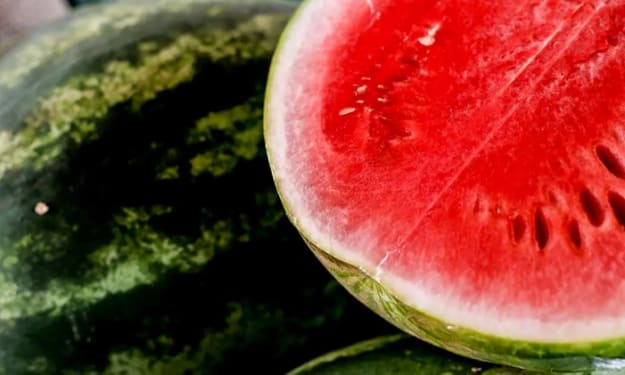GINGER
Ginger: A versatile spice with culinary and medicinal uses

Ginger, scientifically known as Zingiber officinale, is a remarkable flowering plant native to Southeast Asia. This plant's most cherished and versatile component is its rhizome, commonly referred to as ginger root, which is celebrated for its strong, pungent flavor and slightly spicy taste. Ginger has been a culinary staple in various parts of the world for centuries, playing a crucial role in cuisines from Asia, India, and the Caribbean. Beyond its culinary applications, ginger is highly esteemed in traditional medicine and used to treat a wide range of ailments, adding to its significance across diverse cultures.
CULINARY USES OF GINGER
Ginger has a prominent presence in the culinary world, particularly in the cuisines of Asia, India, and the Caribbean. Its distinct flavor profile, a delightful combination of spiciness and warmth, adds depth and character to a myriad of dishes. Whether you're enjoying a savory stir-fry, a zesty curry, or a refreshing bowl of soup, ginger frequently finds its place in these cuisines. The culinary versatility of ginger extends beyond just curries and stir-fries. It's also a key ingredient in sauces, marinades, and dressings, bringing a unique and unmistakable taste to these creations.
In addition to savory dishes, ginger is an essential ingredient in various sweet treats. Gingerbread cookies and cakes are popular desserts that owe their delightful, slightly spicy kick to ginger. Moreover, ginger is also used to flavor and add zest to beverages such as ginger ale and ginger beer, where its distinctive taste complements the carbonation perfectly.
TRADITIONAL MEDICINE AND GINGER
Ginger's medicinal applications are as extensive as its culinary uses. Traditional medicine systems, especially those in Southeast Asia and India, have harnessed the healing properties of ginger for centuries. In Nigeria, ginger plays a significant role not only in culinary traditions but also in indigenous healing practices.
One of the most prominent traditional uses of ginger is for soothing digestive discomfort. It has been found effective in reducing indigestion, bloating, and stomach upset. The active compounds in ginger help to relax the digestive tract, reduce inflammation, and alleviate discomfort, making it a go-to remedy for various digestive ailments.
Furthermore, ginger exhibits notable anti-inflammatory effects due to its bioactive compounds, such as gingerol. This natural anti-inflammatory potential has been studied and found to be beneficial in managing conditions associated with chronic inflammation, including arthritis and heart disease. The antioxidants present in ginger also contribute to reducing oxidative stress and cell damage, which may aid in preventing certain diseases.
Emerging research suggests that ginger may play a role in protecting against specific types of cancer, such as colorectal and pancreatic cancer. The plant's potent antioxidants and anti-inflammatory properties are thought to contribute to this protective effect. However, it's important to note that further investigation is necessary to fully understand the extent of ginger's impact on cancer prevention.
Additionally, ginger exhibits potential in regulating blood sugar levels and improving insulin sensitivity, which could be particularly advantageous for individuals with diabetes or prediabetes. The compounds in ginger help the body better process glucose and enhance overall metabolic health.
CULINARY AND MEDICINAL FUSION IN NIGERIAN CULTURE
In Nigeria, ginger is celebrated not only for its rich culinary contributions but also for its traditional medicinal uses. In Nigerian cuisine, ginger is a cherished ingredient, frequently used to add depth and flavor to stews, soups, and sauces. Its zesty notes elevate the taste of traditional Nigerian dishes, making it a kitchen essential in many households.
Nigerians also incorporate ginger into herbal drinks and tonics, which have a long-standing history in traditional medicine. These beverages are often prepared to address common ailments like colds, flu, and digestive troubles. The warming and soothing qualities of ginger make it a comforting choice for alleviating symptoms and promoting general well-being.
In addition to its internal applications, ginger is utilized in beauty treatments in some regions of Nigeria. Hair masks and skin tonics infused with ginger are believed to have beneficial effects. The root's natural properties, which include anti-inflammatory and antioxidant attributes, may contribute to healthier hair and skin.
CONCLUSION
Ginger is a multifaceted and dynamic plant, with a rich history of culinary and medicinal use. Its distinct flavor enhances a wide range of dishes, from savory to sweet, and its potential health benefits are truly remarkable. As an ingredient that spans cuisines and cultures, ginger continues to be cherished and embraced for its unique taste and versatility.
Whether you savor the zing of ginger in a steaming bowl of curry, relish the warmth of ginger tea on a cold day, or reach for ginger remedies to soothe ailments, this remarkable plant plays an essential role in enhancing both the flavors of our dishes and the quality of our lives. So, consider adding ginger to your daily culinary repertoire not only for its taste but also for its potential health-boosting properties.





Comments
There are no comments for this story
Be the first to respond and start the conversation.